On July 9th, The Farmlink Project facilitated a delivery of 43,000 pounds of potatoes from Mountain Valley Farms in Center, Colorado to Food Bank of the Rockies in Denver.
Food Bank of the Rockies, founded 40 years ago, serves families across 150,000 square miles in Western Colorado and the entire state of Wyoming. In the food bank’s “pre-COVID days,” Collene Daszkiewicz, the food sourcing coordinator, stated that they provide fresh and packaged food to around 450,000 individuals. Now, their distributions have doubled.

.png)
Food Bank of the Rockies has seen a decline in their supply of “shelf-stable” food, but has seen an increase in the amount of fresh produce and protein available; fresh produce and dairy products comprises around 25 percent of the food distributed to the families. Food Bank of the Rockies participates in many grocery rescues to reduce food waste, but a shortage of “shelf-stable” food still exists due to increased demand at conventional grocery stores. Many food banks, including Food Bank of the Rockies, have more storage space for packaged, non-perishable food than refrigerator storage for perishable produce. They have had to adjust their storage to accommodate these changes in their food supply, allowing them to “nourish people” during a time when maintaining physical and mental health is important.
.png)
.png)
Food Bank of the Rockies has shifted their set-up from a typical grocery store layout, where individuals could walk around and pick the items they want, to pre-boxed food items packaged by volunteers to minimize human contact. This large food bank also has mobile pantries that distribute food boxes. After looking down at the box filled with fresh produce, a recipient from one of these mobile pantries exclaimed, “That’s better produce than my mom has gotten from the grocery store!”
Food Bank of the Rockies will repack the 50,000-pound potato delivery from Mountain Valley Farms into 40-pound boxes and distribute them to all of their branch locations. This delivery will alleviate some of the labor-intensive work that their partner agencies have “stepped up and gone above and beyond” in doing during this difficult time. Collene is grateful that The Farmlink Project is “taking the pressure off of both ends” and recognizing the complexity of this break in the supply chain. The Farmlink Project is proud to work with amazing organizations that are reaching thousands of people, and we are excited that Mountain Valley Farms provided potatoes to Food Bank of the Rockies.
< Back
On July 9th, The Farmlink Project facilitated a delivery of 43,000 pounds of potatoes from Mountain Valley Farms in Center, Colorado to Food Bank of the Rockies in Denver.
Food Bank of the Rockies, founded 40 years ago, serves families across 150,000 square miles in Western Colorado and the entire state of Wyoming. In the food bank’s “pre-COVID days,” Collene Daszkiewicz, the food sourcing coordinator, stated that they provide fresh and packaged food to around 450,000 individuals. Now, their distributions have doubled.

.png)
Food Bank of the Rockies has seen a decline in their supply of “shelf-stable” food, but has seen an increase in the amount of fresh produce and protein available; fresh produce and dairy products comprises around 25 percent of the food distributed to the families. Food Bank of the Rockies participates in many grocery rescues to reduce food waste, but a shortage of “shelf-stable” food still exists due to increased demand at conventional grocery stores. Many food banks, including Food Bank of the Rockies, have more storage space for packaged, non-perishable food than refrigerator storage for perishable produce. They have had to adjust their storage to accommodate these changes in their food supply, allowing them to “nourish people” during a time when maintaining physical and mental health is important.
.png)
.png)
Food Bank of the Rockies has shifted their set-up from a typical grocery store layout, where individuals could walk around and pick the items they want, to pre-boxed food items packaged by volunteers to minimize human contact. This large food bank also has mobile pantries that distribute food boxes. After looking down at the box filled with fresh produce, a recipient from one of these mobile pantries exclaimed, “That’s better produce than my mom has gotten from the grocery store!”
Food Bank of the Rockies will repack the 50,000-pound potato delivery from Mountain Valley Farms into 40-pound boxes and distribute them to all of their branch locations. This delivery will alleviate some of the labor-intensive work that their partner agencies have “stepped up and gone above and beyond” in doing during this difficult time. Collene is grateful that The Farmlink Project is “taking the pressure off of both ends” and recognizing the complexity of this break in the supply chain. The Farmlink Project is proud to work with amazing organizations that are reaching thousands of people, and we are excited that Mountain Valley Farms provided potatoes to Food Bank of the Rockies.
Food Bank of the Rockies
Center, CO to Denver, CO
On July 9th, The Farmlink Project facilitated a delivery of 43,000 pounds of potatoes from Mountain Valley Farms in Center, Colorado to Food Bank of the Rockies in Denver.
Food Bank of the Rockies, founded 40 years ago, serves families across 150,000 square miles in Western Colorado and the entire state of Wyoming. In the food bank’s “pre-COVID days,” Collene Daszkiewicz, the food sourcing coordinator, stated that they provide fresh and packaged food to around 450,000 individuals. Now, their distributions have doubled.

.png)
Food Bank of the Rockies has seen a decline in their supply of “shelf-stable” food, but has seen an increase in the amount of fresh produce and protein available; fresh produce and dairy products comprises around 25 percent of the food distributed to the families. Food Bank of the Rockies participates in many grocery rescues to reduce food waste, but a shortage of “shelf-stable” food still exists due to increased demand at conventional grocery stores. Many food banks, including Food Bank of the Rockies, have more storage space for packaged, non-perishable food than refrigerator storage for perishable produce. They have had to adjust their storage to accommodate these changes in their food supply, allowing them to “nourish people” during a time when maintaining physical and mental health is important.
.png)
.png)
Food Bank of the Rockies has shifted their set-up from a typical grocery store layout, where individuals could walk around and pick the items they want, to pre-boxed food items packaged by volunteers to minimize human contact. This large food bank also has mobile pantries that distribute food boxes. After looking down at the box filled with fresh produce, a recipient from one of these mobile pantries exclaimed, “That’s better produce than my mom has gotten from the grocery store!”
Food Bank of the Rockies will repack the 50,000-pound potato delivery from Mountain Valley Farms into 40-pound boxes and distribute them to all of their branch locations. This delivery will alleviate some of the labor-intensive work that their partner agencies have “stepped up and gone above and beyond” in doing during this difficult time. Collene is grateful that The Farmlink Project is “taking the pressure off of both ends” and recognizing the complexity of this break in the supply chain. The Farmlink Project is proud to work with amazing organizations that are reaching thousands of people, and we are excited that Mountain Valley Farms provided potatoes to Food Bank of the Rockies.
.png)
.jpg)
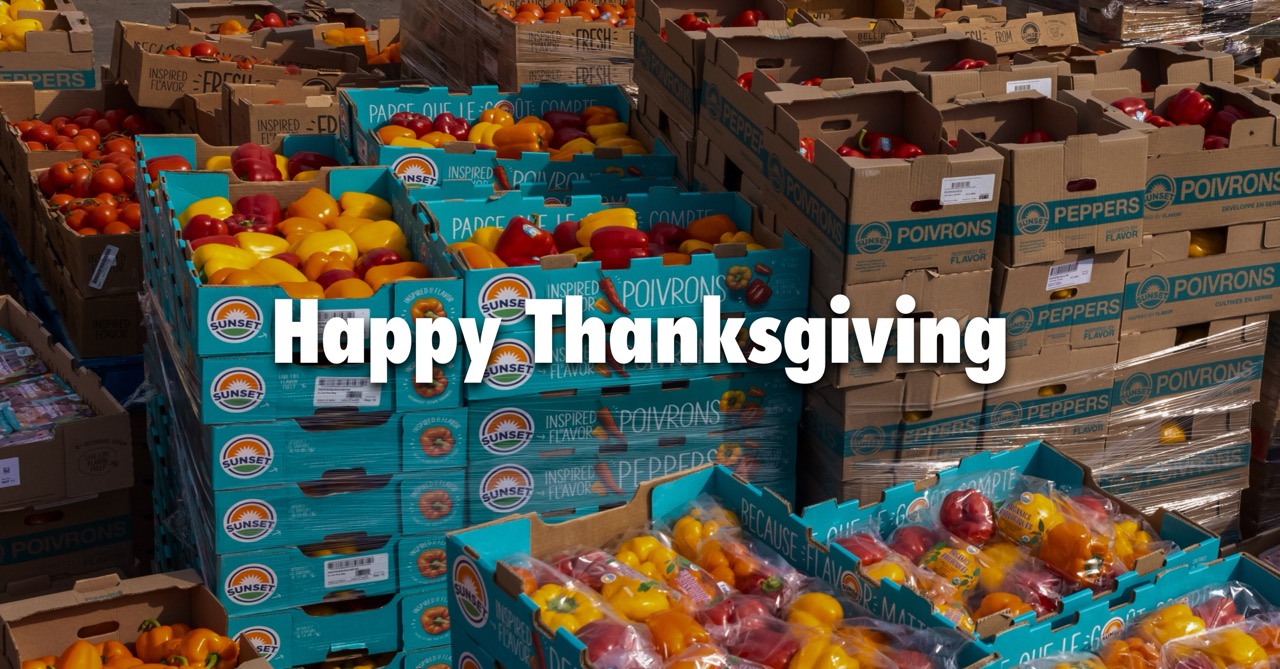
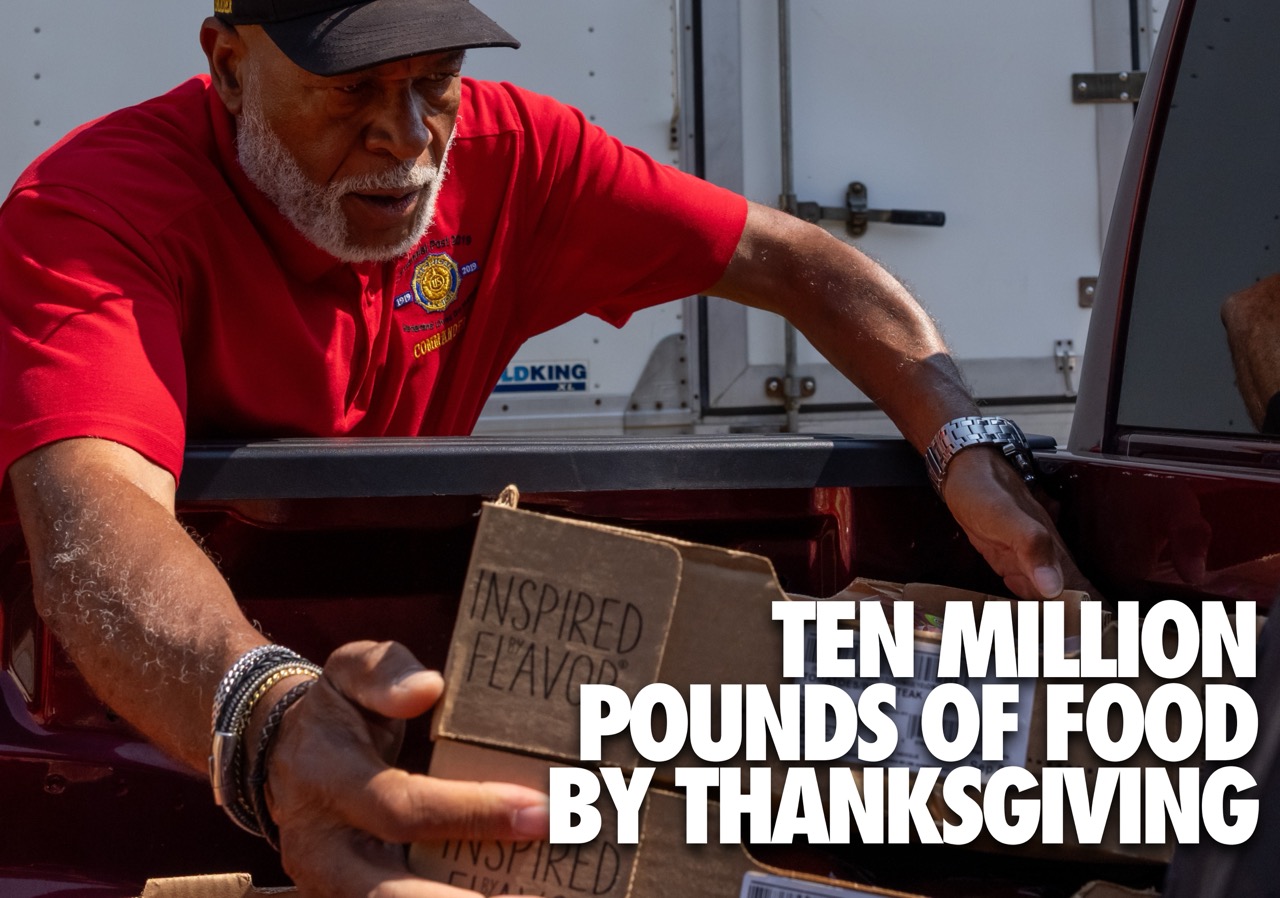
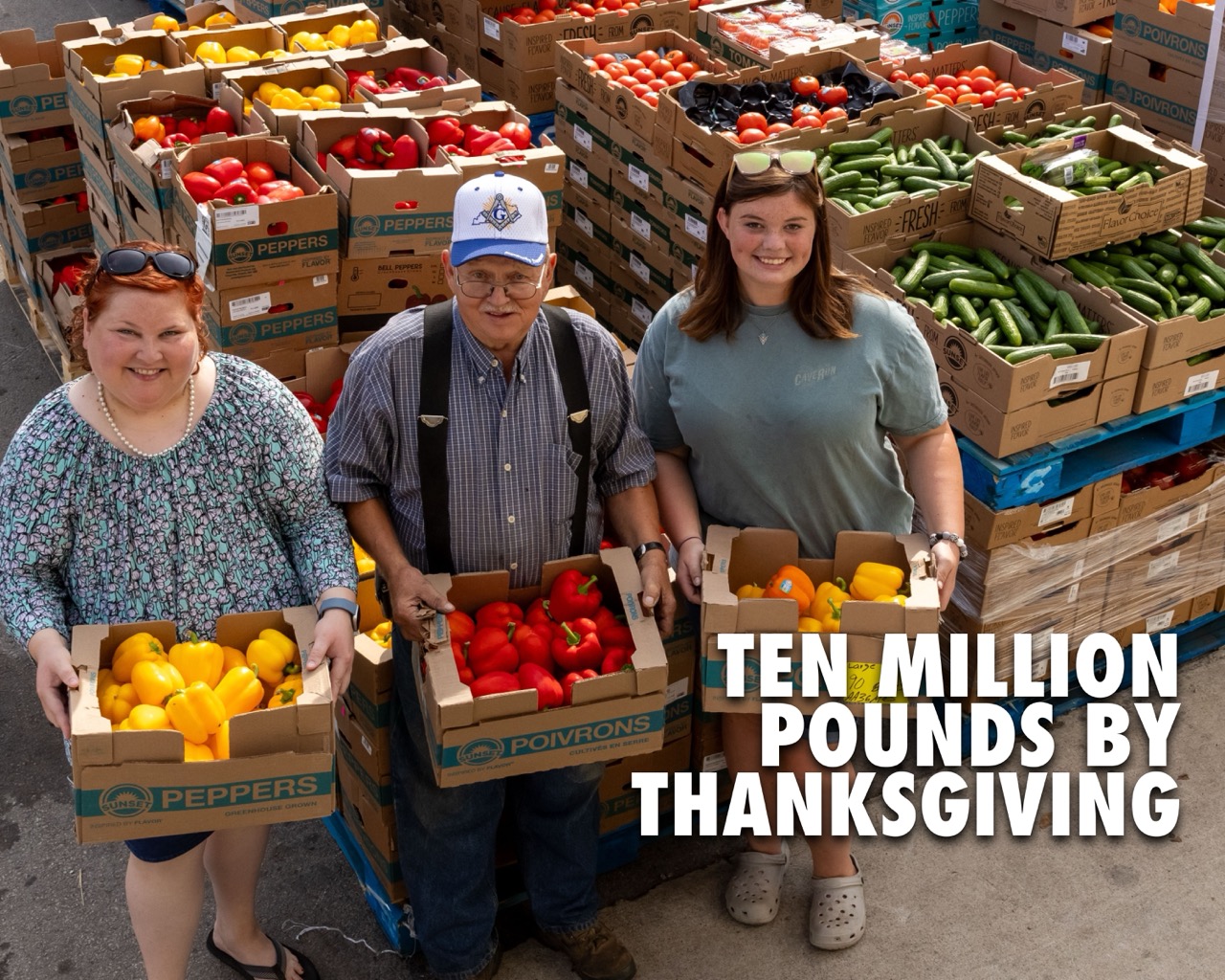
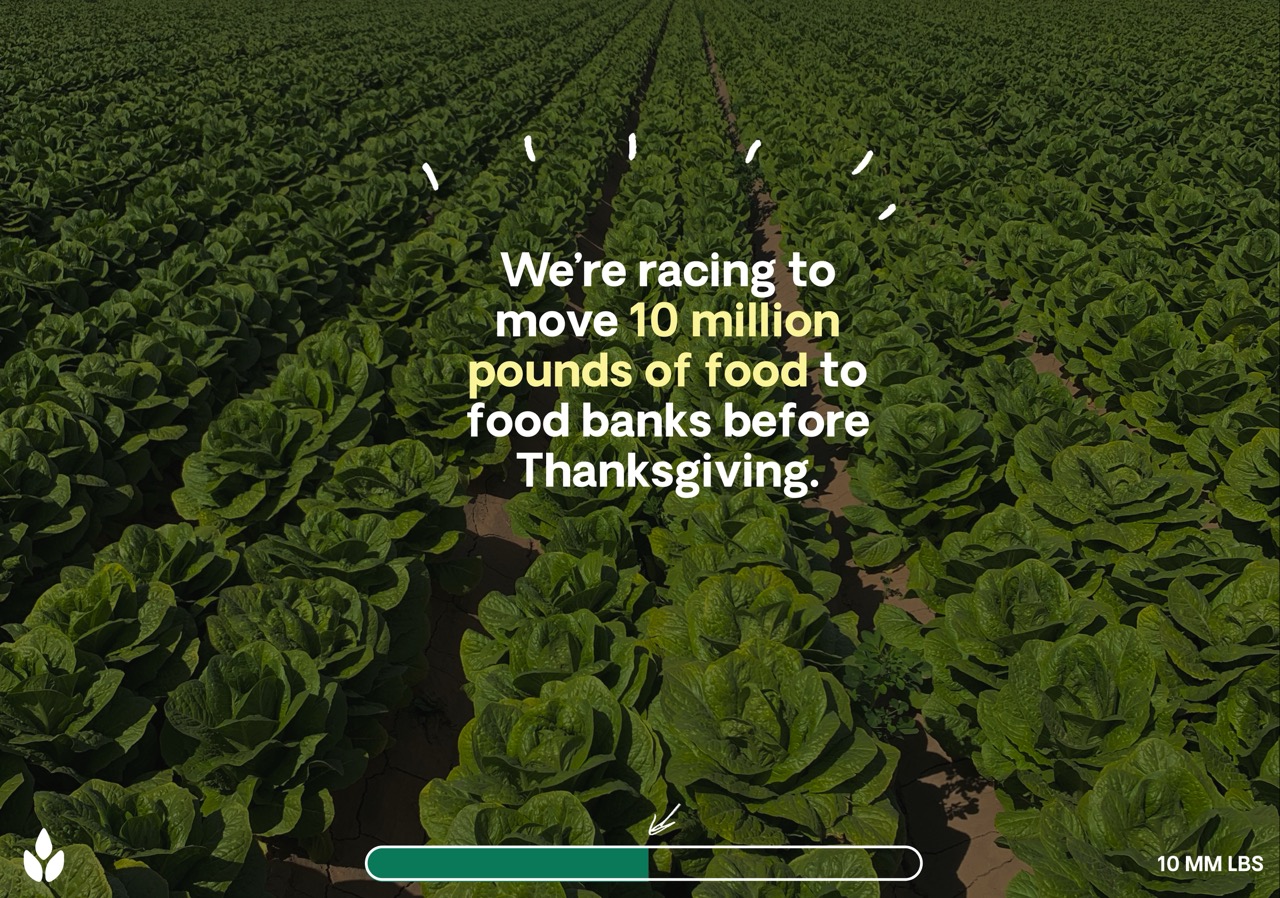
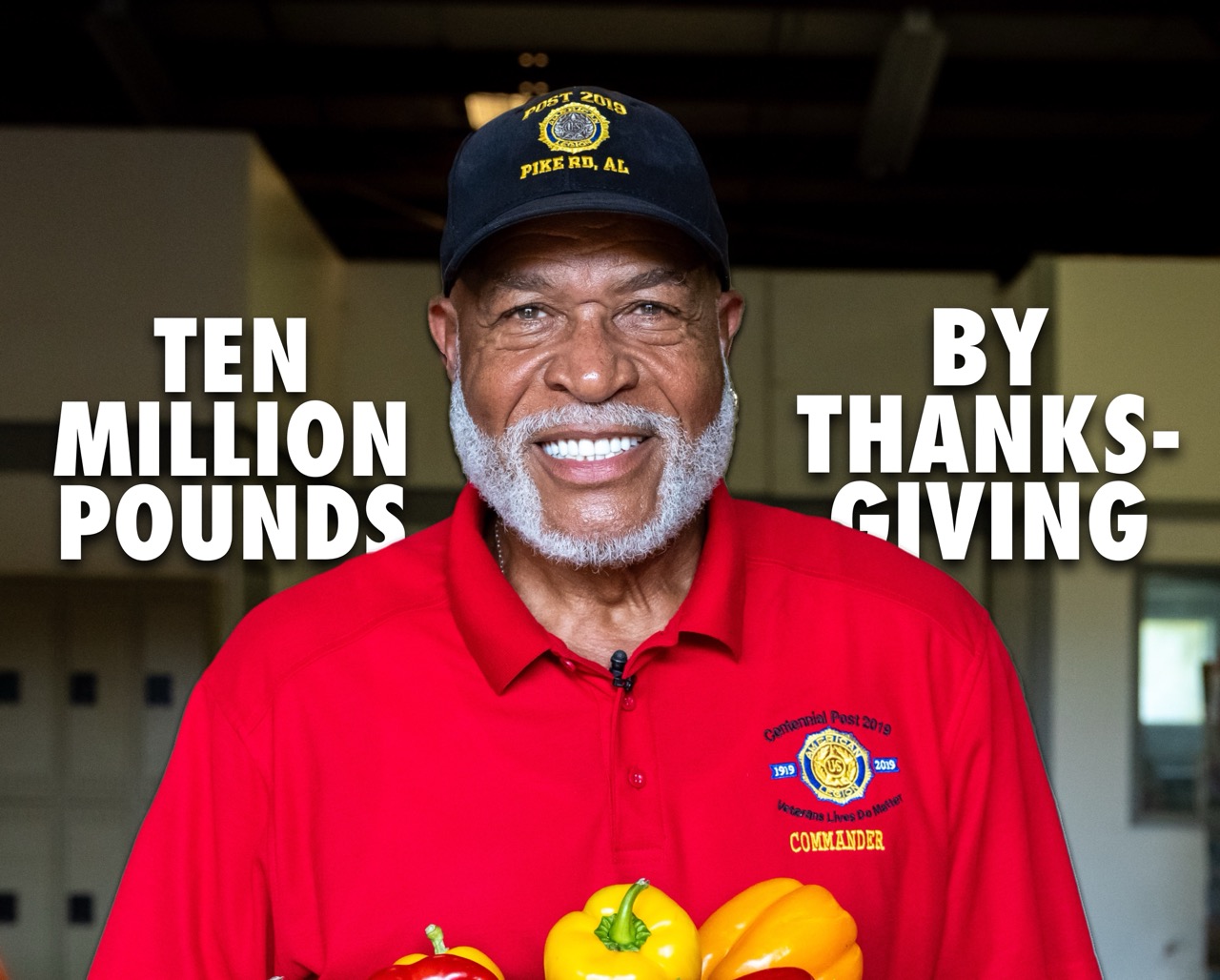
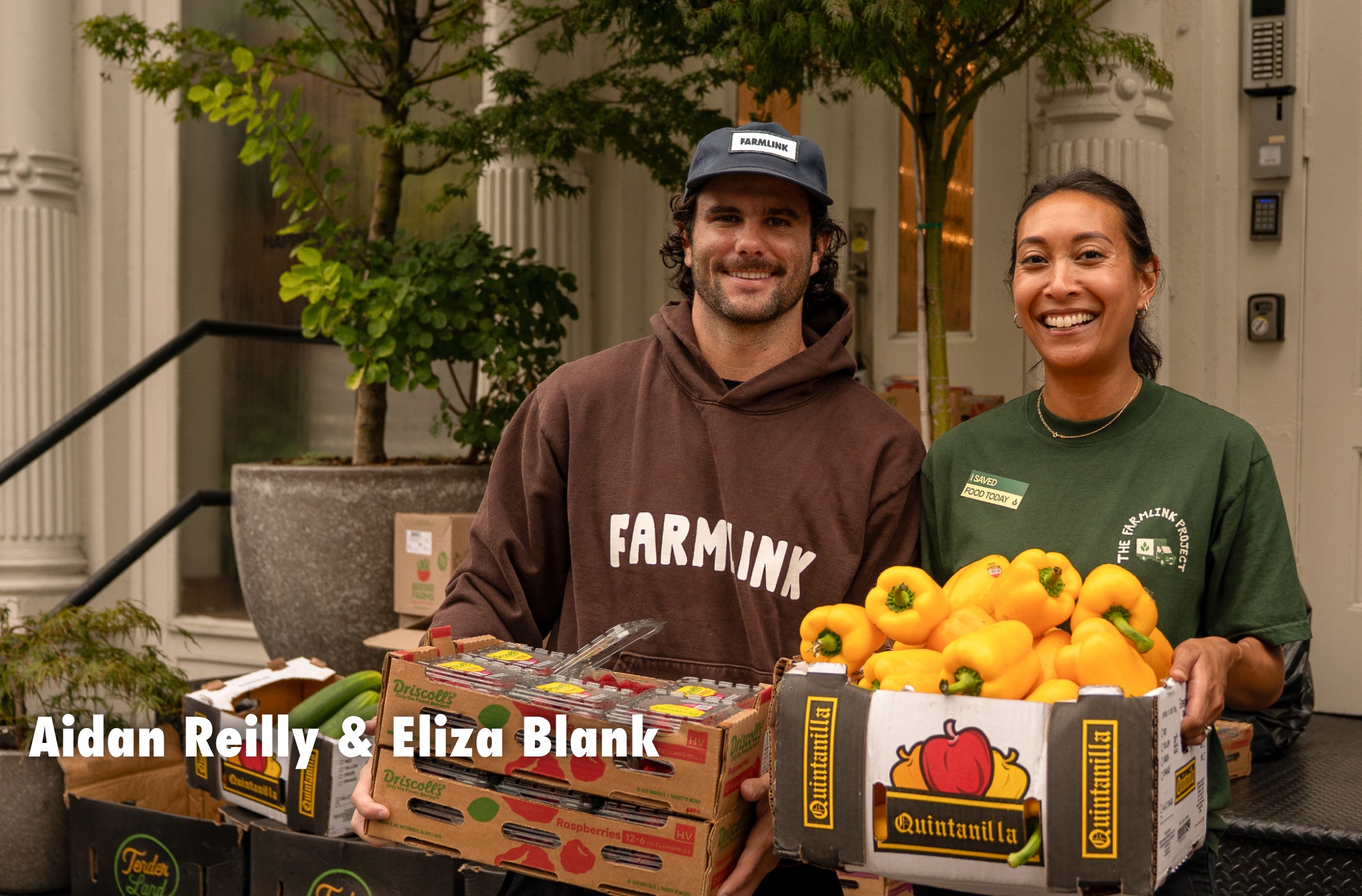
.svg)
.svg)
.svg)